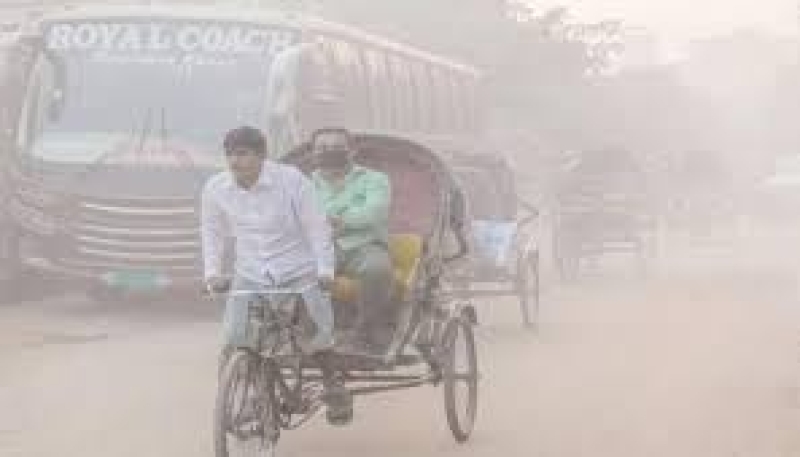- UK Pledges Aid to Support Rohingya Refugees and Host Communities |
- Investors and Officials Challenge Elon Musk’s $1 Trillion Pay |
- Global Protests Erupt Over Israeli Blockade of Gaza Flotilla |
- Dhaka’s air quality recorded moderate Friday morning |
- Nabaganga River erodes homesteads in Par Bishnupur, Narial |
Dhaka’s air quality recorded moderate Friday morning

Air quality of Dhaka on Friday morning.
Dhaka, Oct 3 -Dhaka, the overcrowded capital city of Bangladesh, has ranked 24th on the list of cities with the worst air quality with an AQI score of 69 at 10 am Friday morning (October 3, 2025).
Today Dhaka’s air was classified as ‘moderate,’ referring to a light health threat, according to the AQI index.
Egypt’s Cairo, Afghanistan’s Kabul and Democratic Republic of the Congo’s Kinshasa cities respectively occupied the first, second and third spots on the list, with AQI scores of 278, 165, and 159 respectively.
When the AQI value for particle pollution is between 50 and 100, air quality is considered ‘moderate’, usually sensitive individuals should consider limiting prolonged outdoor exertion, between 101 and 150, air quality is considered ‘unhealthy for sensitive groups’, between 150 and 200 is ‘unhealthy’, between 201 and 300 is said to be 'very unhealthy', while a reading of 301+ is considered 'hazardous', posing serious health risks to residents.
The AQI, an index for reporting daily air quality, informs people how clean or polluted the air of a certain city is and what associated health effects might be a concern for them.
The AQI in Bangladesh is based on five pollutants: particulate matter (PM10 and PM2.5), NO2, CO, SO2, and ozone.
Dhaka has long been grappling with air pollution issues. Its air quality usually turns unhealthy in winter and improves during the monsoon.
As per World Health Organization (WHO), air pollution kills an estimated seven million people worldwide every year, mainly due to increased mortality from stroke, heart disease, chronic obstructive pulmonary disease, lung cancer, and acute respiratory infections. - UNB

